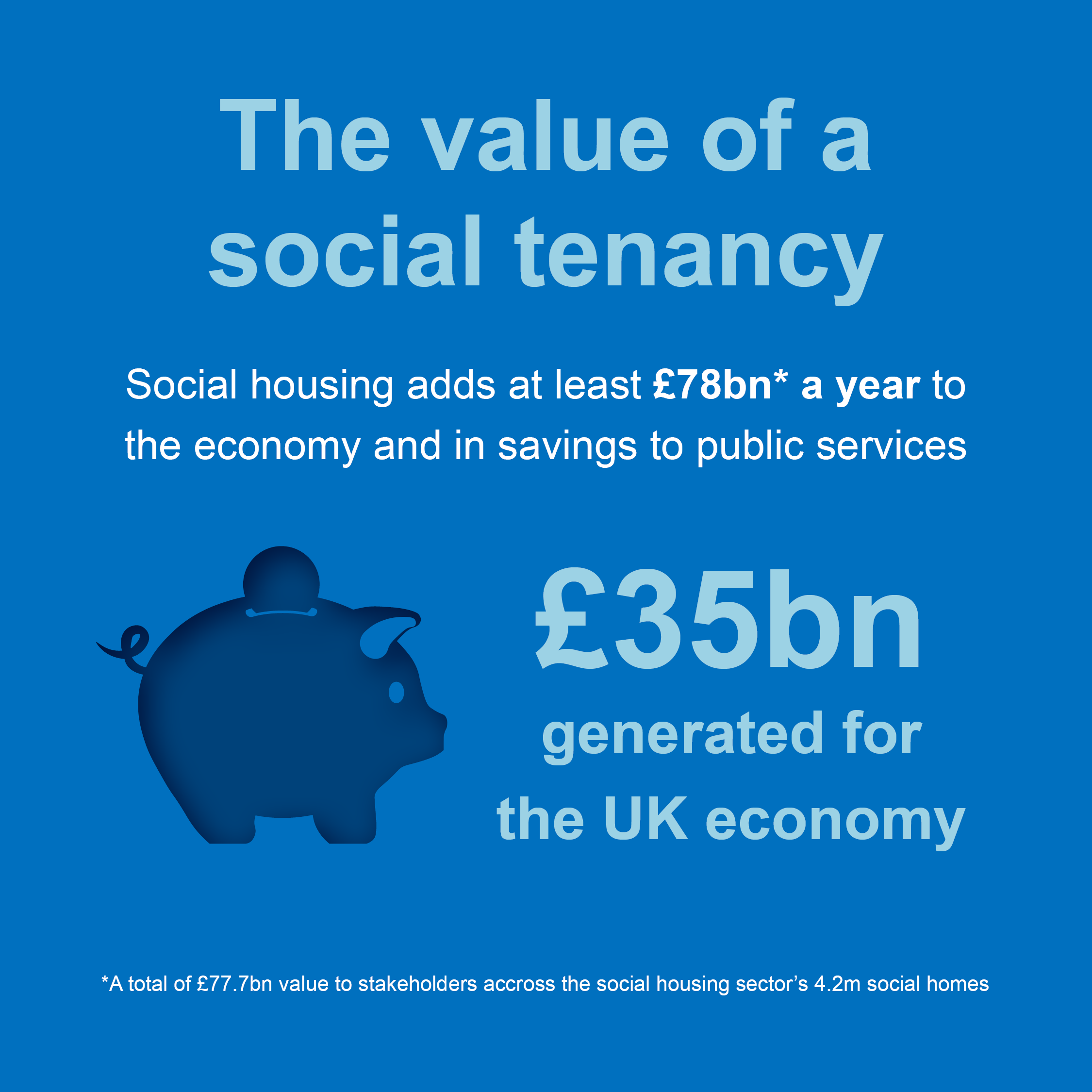
England’s 4.2 million social rented homes contribute at least £77.7 billion a year to the national economy in savings for the NHS, councils, police and government, and in the economic opportunities created for residents, according to new research published by The Hyde Group and Sonnet Advisory & Impact CIC.
However, based on the average value brought by a social tenancy of at least £18,051 in 2023/24, England is also missing at least £25.25bn of value this year from the 1.4 million social homes that have been lost since 1979.
Tackling the housing crisis
Now, a group of leading social housing providers is urging the government to tackle the housing crisis, through a long-term plan for affordable housing, including the building of 90,000 new social homes each year, as called for by the National Housing Federation and Shelter.
Our team at Sonnet Advisory & Impact CIC were commissioned by The Hyde Group (one of England’s biggest builders of affordable housing), working with 5 other leading housing associations and the homebuilder, Vistry Group, to provide economic analysis of the benefits of England’s social housing stock. The new report is an update of our well-respected research originally published in 2018 (and updated in 2019) entitled The value of a social tenancy.
Social housing creates stability and provide support
The new report, The value of a social tenancy: Updating and developing the model in 2024, demonstrates that social housing creates stability in tenants’ lives and provides support around them when needed that enables them to manage daily living.
That is even more the case than when we did the first study in 2018.
What has also changed is the emergence of digital exclusion as a big issue, with people facing being cut out of a wide range of the everyday supports, from access to work to deals on everyday essentials, from banking to benefits and social support. Social housing providers are working to combat this for their tenants.
Social housing is not just for people struggling to keep their heads above water, coping with health and financial issues. It also brings its stability to those facing employment uncertainty and in-work poverty, and for those in regular employment who manage well, but need that stability to keep doing so.
The value of a social tenancy
The value of these benefits across all of England’s social homes include:
- Saving the NHS at least £19bn a year: People living in social housing have improved mental and physical health, make fewer GP and A&E visits, have fewer drug and alcohol issues, there are fewer falls for the elderly and fewer cases of asthma.
- Saving the Department for Work and Pensions at least £2.4bn a year: People living in social housing are more likely to be employed than, for example, someone in temporary accommodation, reducing Universal Credit claims.
- Generating at least £35bn for the UK economy: More adults living in social housing are in work and are in work for longer because of the stability social housing provides. Work absences of people living in social housing is about half that of those privately renting.
- Saving local councils at least £8bn a year: Significant savings are made by keeping residents out of temporary accommodation, helping the elderly stay independent for longer, and because children living in social housing are less likely to be on the Child Protection Register.
- Saving police and justice at least £9.6bn a year: People living in social housing are less likely to be involved in, or to be, victims of crime.
- Improving education to boost the economy by at least £2.5bn a year: Children living in social housing are more likely to attend school and have improved earning potential.
- Preventing at least £218m of personal debt a year: People living in social housing are less likely to have problems with debt.
The research is based on the analysis of savings and benefits provided by more than 220,000 social homes provided by 6 housing associations across England.
Greater investment in social housing
This new report comes just weeks after the Levelling Up, Housing and Communities Committee inquiry reported that the social housing sector is “under serious financial pressure” and called for greater government investment in social housing.
Leading social housing providers are now urging the government to look at the findings and provide a stable, long-term national plan for housing to enable them to attract more private investment into social and affordable housing.
The figures in our research are up against those in earlier years as the effects of COVID and the cost of living and fuel crises bite many. Social housing tenants are to some degree cushioned from the worst of that. Social housing, its stability and support, remain a major contributor of value in our local and national economies, and in the lives of real people.








